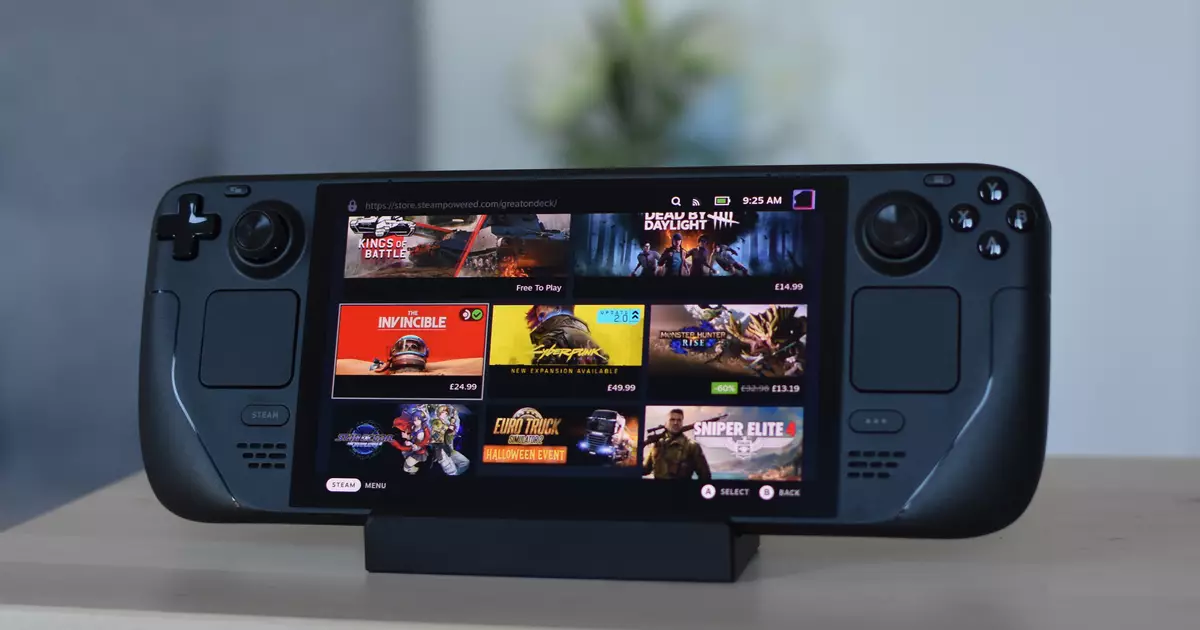The gaming hardware landscape is in a constant state of flux, with companies constantly innovating and testing boundaries. Valve, known for its groundbreaking contributions to both hardware and software, appears to be steering towards a new direction by exploring ARM architecture. This analysis delves into the implications of this potential shift, rooted in recent developments surrounding Valve and its testing of new software that suggests a compatibility layer for ARM processors.
Valve has made significant strides in the hardware realm over the past decade. From the Valve Index to the Steam Deck, the company has showcased its commitment to expanding the gaming experience beyond traditional limits. The rumor mill is once again alive with speculation following the discovery of a software application labeled ‘ValveTestApp3043620.’ This piece of software is linked to a wide array of PC games, creating excitement and curiosity about Valve’s future offerings.
For long-standing fans and stakeholders, this suggests that Valve may be working on an ARM-based version of Proton—its compatibility layer designed to allow Windows games to run on SteamOS. Unlike the x86 architecture that has dominated the PC gaming scene, ARM processors, which are widely utilized in devices like the Nintendo Switch and modern smartphones, offer an intriguing alternative shaped by power efficiency and a modular ecosystem.
The ARM architecture has become synonymous with mobile computing and efficiency. Its chipsets outperform many x86 counterparts in terms of power management, making them ideal for portable gaming devices such as handheld consoles or wireless VR headsets. This efficiency stands in stark contrast to x86 processors, traditionally utilized in most gaming setups.
One of the most promising aspects of this hypothetical transition to ARM is the potential integration with Android. A wider compatibility with mobile gaming could significantly expand the PC library for Steam users. However, such integration also raises challenges. A large volume of existing titles is designed exclusively for x86 architecture, creating a compatibility gap that could affect performance. If Valve intends to venture into ARM-based hardware, bridging this gap is likely to be one of its foremost challenges.
While modern ARM chips can rival the performance of their x86 counterparts, a central concern remains—the compatibility of existing PC games. Current technologies such as Proton provide a workaround by allowing Windows games to run on Valve’s Linux-based SteamOS, but adding a layer to accommodate ARM architecture might complicate matters significantly. This could potentially involve a rather cumbersome process akin to full emulation, which traditionally incurs performance penalties.
This conundrum can be likened to a high-stakes balancing act; Valve must weigh the advantages of power efficiency against potential performance dips. The fate of a new Steam Deck or an ARM-based VR headset could hang in the balance, contingent on Valve’s ability to deliver a product that meets gamers’ expectations in both usability and performance.
Despite the challenges that lie ahead, Valve’s persistence in hardware innovation indicates that the company is unlikely to step back now. The revival of rumors surrounding the ARM architecture suggests that the gaming giant is exploring new horizons rather than resting on its laurels. The prospect of a new generation of Steam Machines could open exciting avenues for gamers, especially if Valve can leverage ARM’s efficiency effectively.
While Valve’s potential pivot towards ARM architecture raises questions about performance and compatibility, it also heralds a new age of possibilities. Should these developments come to fruition, we could witness a future where seamless mobile gaming integrates cohesively with PC environments, ultimately transforming the gaming experience. The next chapter of Valve’s hardware saga is poised to be as dynamic as its previous ones, sparking curiosity and anticipation among gamers worldwide. As we await official announcements, the excitement builds around what Valve may unveil next in the ever-evolving world of gaming technology.


Leave a Reply